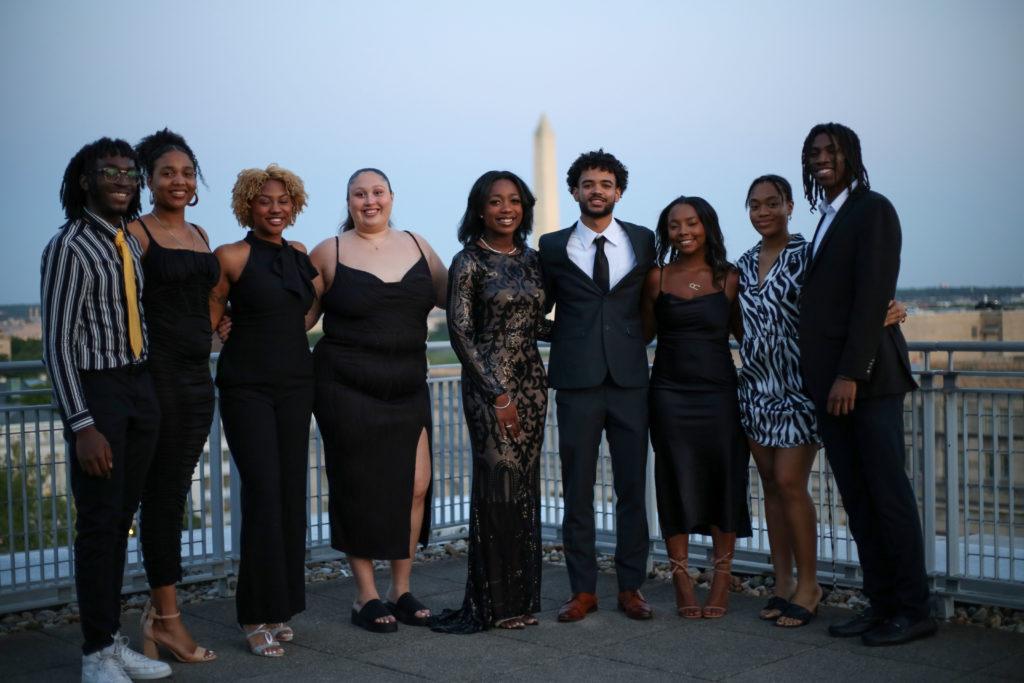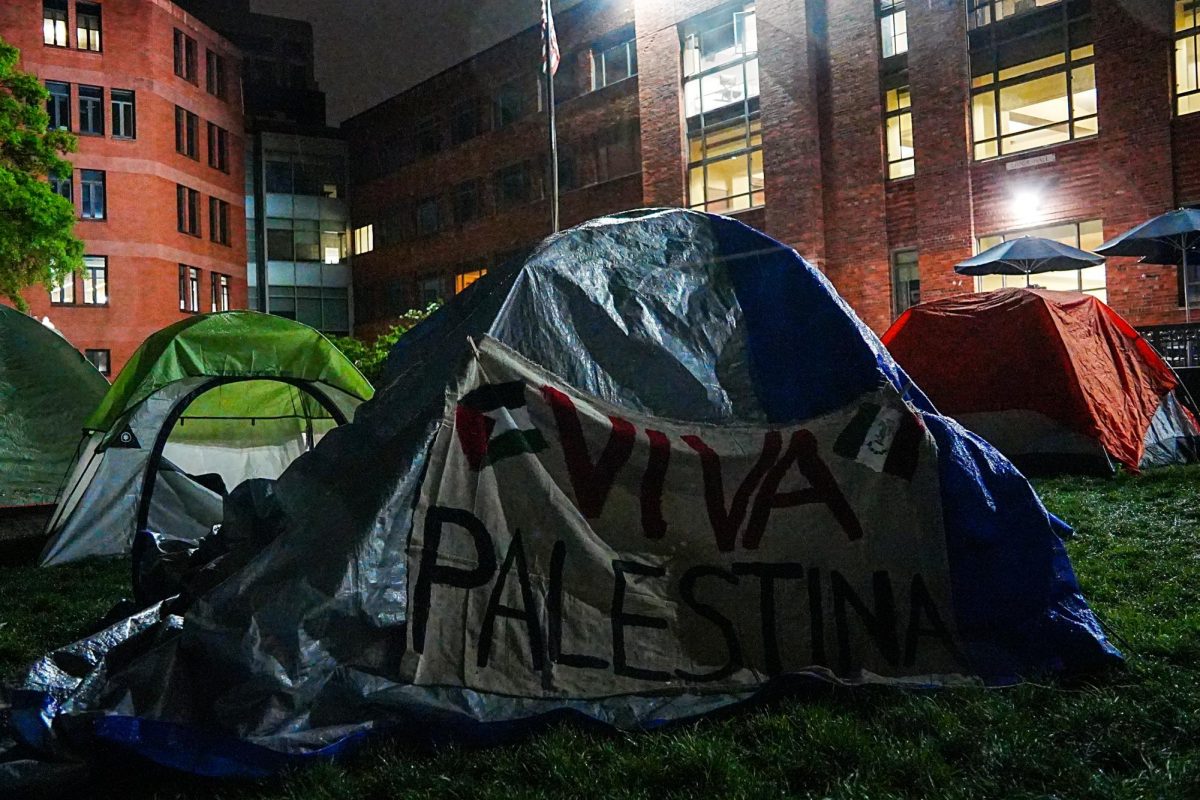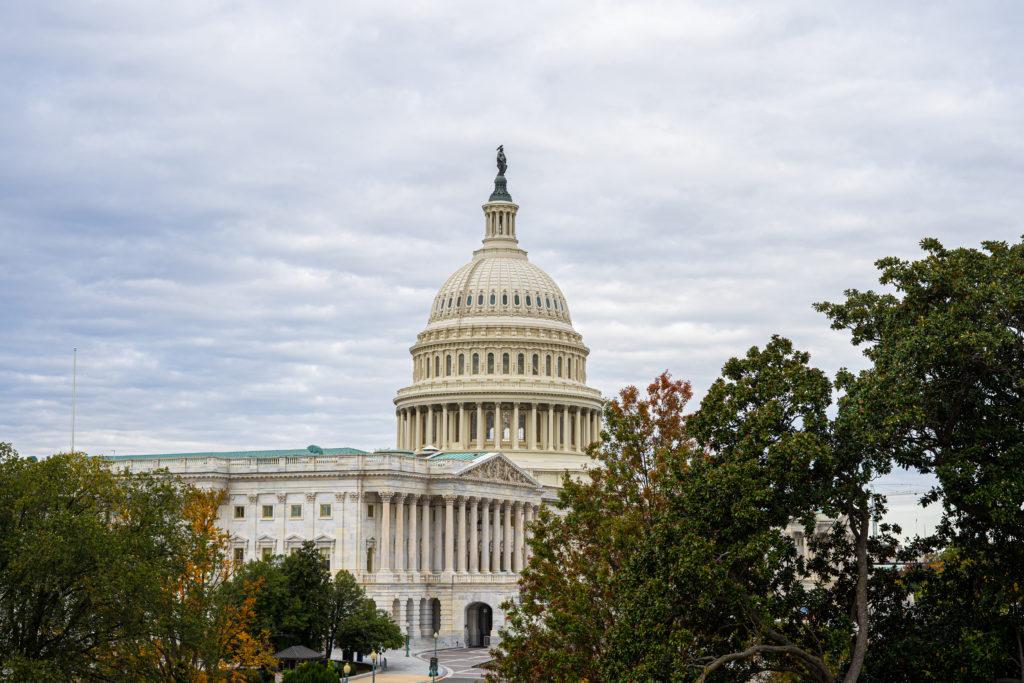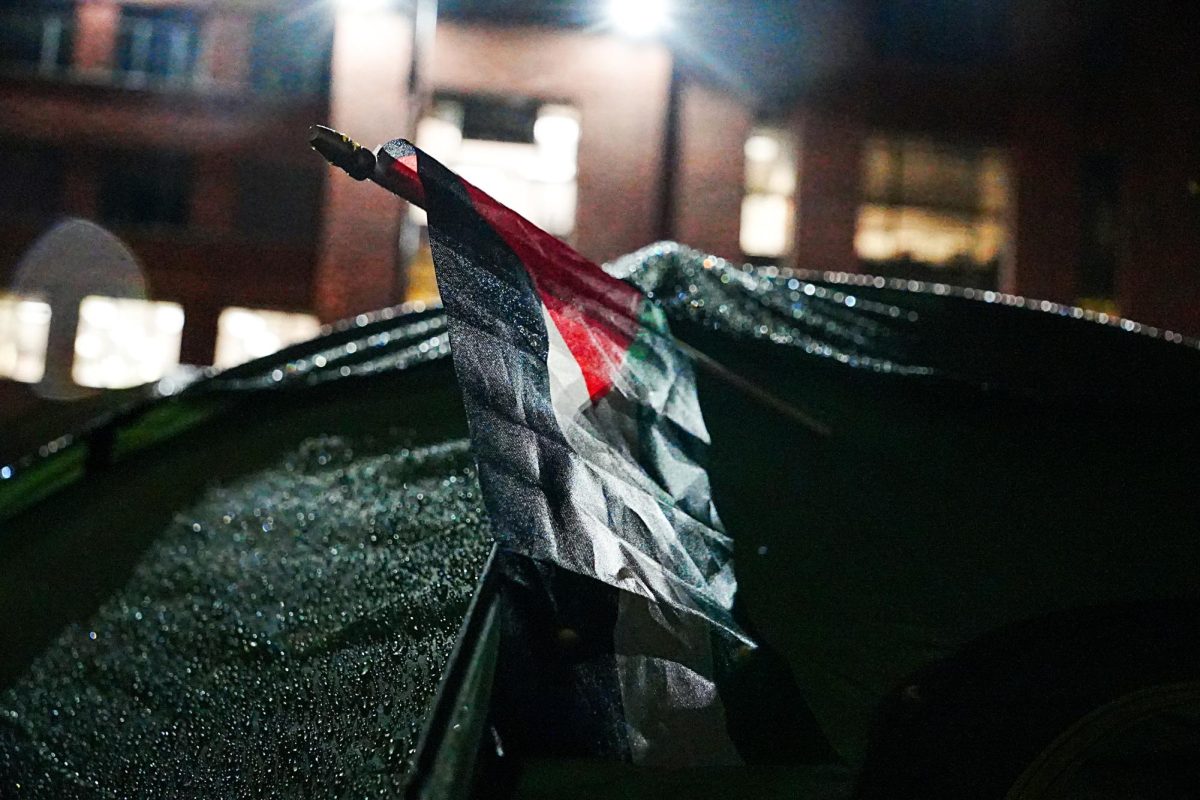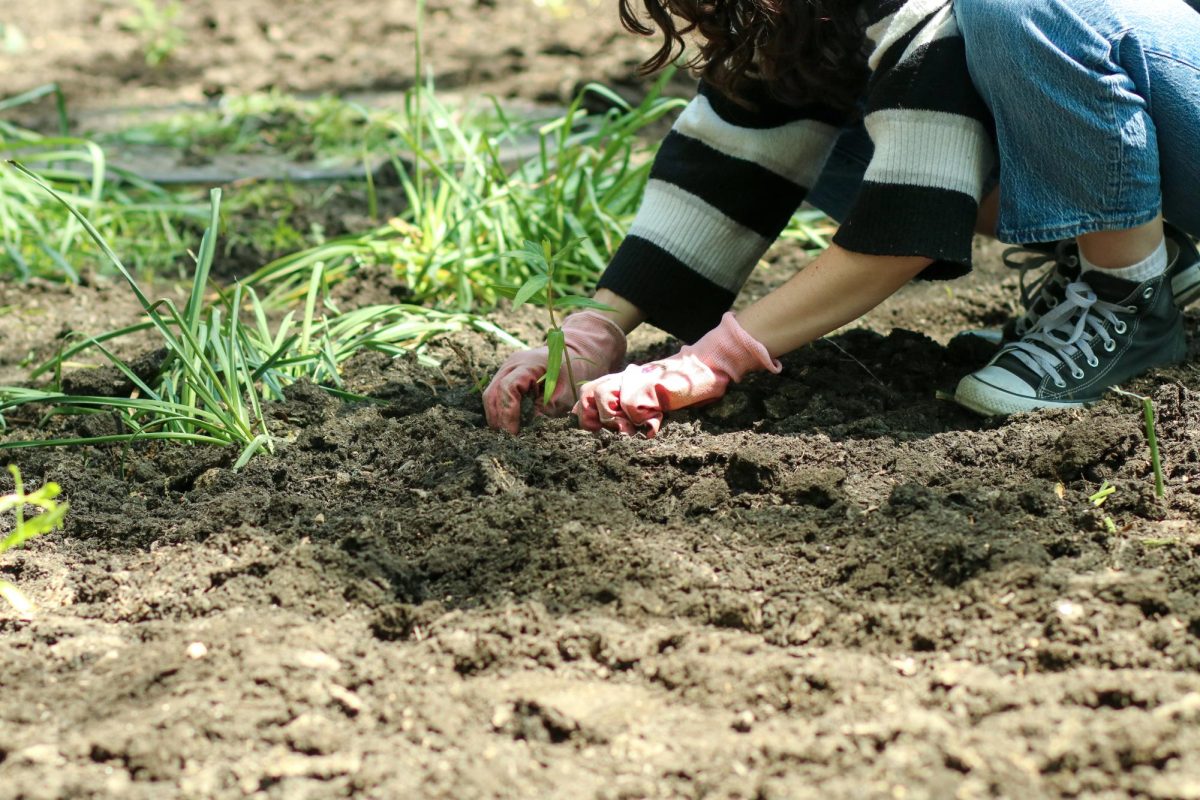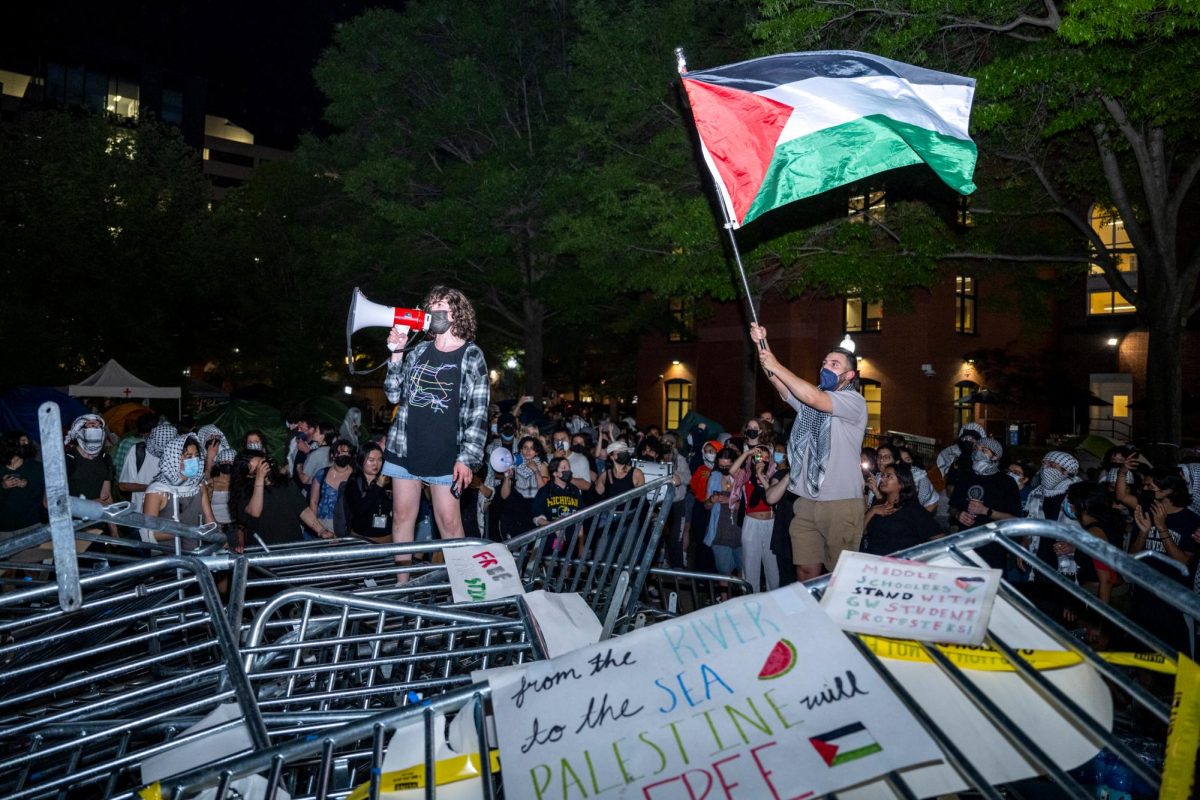Under a framework of placing the creative spirit of Black students at the center of programming, Black Student Union leaders said their celebration of cultural art and history and pushes for administrative reform have defined a year of progress on campus.
BSU leaders said the umbrella student organization climbed to new levels of student turnout at its events this past year, especially at the Black Heritage Celebration’s Finale in February, while honoring Black artistic expression through its annual theme, “The Black Renaissance: Innovation Continued.” They said BSU also kickstarted conversations with officials about implementing stronger rules to ensure faculty respect students’ diversity in response to continued acts of racism in the classroom.
They said they hope the students elected earlier this month to lead BSU for the next year will work with the administration under incoming University President Ellen Granberg to continue building off the last year of progress.
BSU President Gianna Cook said a spike in turnout at Black Heritage Celebration events marked a major success for BSU this past school year, attributing the strong attendance to increased marketing and advertisements from BHC’s planning committee and support from students at nearby schools, like Howard and George Mason universities. She said attendance at BHC’s annual Finale event – a formal celebration that took place at The Gathering Spot restaurant in Downtown in late February, culminating the month’s heritage programming – jumped to 600 people this year from roughly 320 last year.
“That was amazing to see so many people dressed in their best attire, and we’re just coming together celebrating the month that’s with us,” Cook said. “It was definitely a size I don’t think I’ve ever seen in my four years of GW – a Finale that large with a great space and a great venue.”
Cook said student leaders launched their demands for administrators to respond to a series of reports of faculty racism through 2022 during a protest in Kogan Plaza in December with more than 50 students. She said students gathered to share their own experiences with microaggressions and racism in the classroom.
Cook said BSU leaders released a letter shortly before the protest pushing the University to introduce mandatory bias training for faculty, implement disciplinary measures for tenured professors who use harmful language and increase faculty diversity. The letter also calls on the SA to expand its representation of Black students within the student government.
Students at the December rally protested acts of racism that have been built into classroom environments on campus, including when professor Marie Matta’s denied a Black student’s service dog from class last January, professor Alicia Bitler’s used the N-word in a GWTeach course that same month and professor Michael Stoil defended his racist comments in a class in September.
“The reason we did the protest was that we didn’t want to wait for another student to be harmed for action to happen,” Cook said.
Cook said shortly following the protest, BSU leaders met with administrators before the end of the fall semester to discuss implementing their demands to halt further acts of discrimination against students of color in the classroom, but BSU leaders don’t yet see a specific timeline. Cook said she hopes to see discussions continue between BSU leaders and the future administration under Granberg.
“It’s definitely been a conversation they’re open to having,” Cook said.
Drew Dodd, the vice president of BSU, said leading BSU’s Black Solidarity Conference in April, a conference discussing topics like social activism and Black knowledge, was a “full circle moment” after he helped to organize its first year of programming in 2022. He said although he won’t be returning to BSU’s leadership next year, he hopes the incoming BSU leaders for the upcoming academic year will continue traditions that he has worked to establish, like the conference, which invited current members and alumni of BSU to speak on themes like entrepreneurship and heritage.
“While we were doing the introduction of the actual event, we said ‘Welcome to our second annual Black solidarity conference event,’ and that was really a moment for all of us,” Dodd said.
Dodd said it was “difficult” seeing handfuls of students come forward at the December protest to share stories of their own experiences with racism and microaggressions they encountered in the classroom during their time at GW.
“It wasn’t planned for us to have a section of talking about personal discussions, but I said my piece, and then multiple other students came up and said their piece,” Dodd said. “It’s unfortunate, but it’s valuable to see commonalities amongst us.”
Dodd said while BSU leaders’ communication with administrators following the protest was “positive,” pushing officials to implement all of the demands within the past semester has been difficult.
“It wasn’t necessarily something that we could change within a semester,” Dodd said. “It’s definitely something that I want to look at to try and build on next year and the years that follow.”
University spokesperson Julia Metjian said officials met with BSU leaders in the fall for a “productive discussion” about GW’s response to racism and discrimination from faculty through plans like reviewing the faculty tenure process and recognizing the importance of racial identity in a classroom environment.
She said harassment and discrimination training is mandatory for all part- and full-time faculty members. She said the University’s faculty performance management system now tracks training completion as a prerequisite for “merit considerations.” She said all new faculty and University leaders receive in-person bias training and practices for Title IX and “anti-discrimination matters.”
“The University will continue to review policies and programs to ensure they best support our community,” Metjian said in an email.
Joanna Destil, BSU’s vice president of marketing, said BSU worked to deepen relationships with University departments during the year through community outreach events with the GW Police Department during the fall semester, like Raise High with GWPD, which BSU co-hosted with the department in University Yard.
She said BSU members discussed the meaning behind creative pieces from Black creators and their influence in popular forms of media at general body meetings.
“Am I just listening to the words, or am I taking that and making something of it?” Destil said.
Ryan Titus, BSU’s historian, said she gathered and posted information on BSU’s Instagram account during the week of the Black Solidarity Conference about Harlem Renaissance figures like Alain LeRoy Locke, a philosopher and writer who was the first African American Rhodes scholar, to inspire students to showcase their own artistic abilities while analyzing Black creators’ accomplishments.
Titus said BSU has appreciated interim University President Mark Wrighton and his efforts to attend events like BHC’s keynote speaker event in February, featuring comedian Amanda Seales. She said she hopes Granberg will put more emphasis on “doing” things for students and forging better relationships with student organizations, especially those which advocate for women and LGBTQ+ communities.
“I feel like it’s more than about just showing up but more about doing,” Titus said.
Faith Wardwell contributed reporting.


